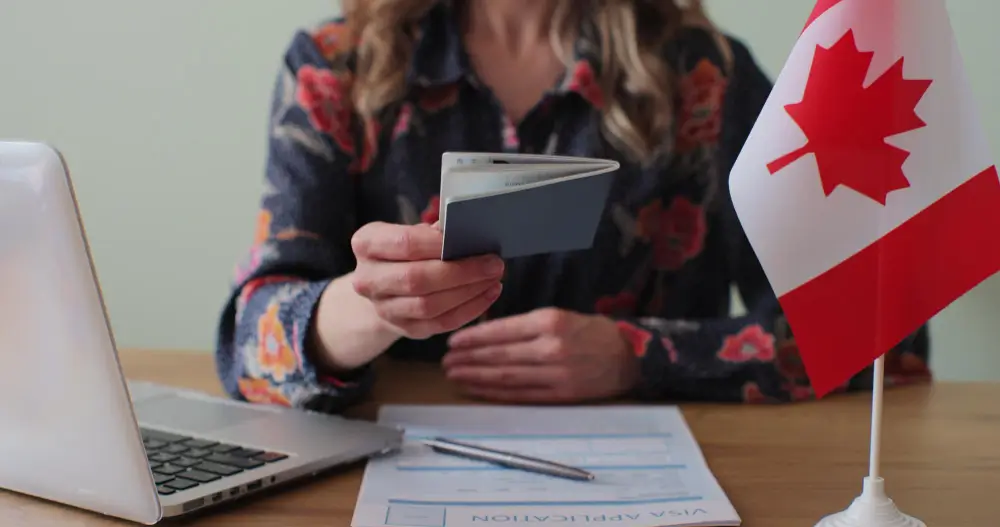
Bringing a child into the world through surrogacy is an exciting and emotional journey—especially for international parents. If your baby is born in Canada via a surrogate, understanding the legal process for citizenship and passport issuance is essential.
This guide explains how Canadian citizenship works for surrogate-born babies, the required documents, timelines, and what parents must prepare before and after the delivery.
Does a Baby Born Through Surrogacy in Canada Get Citizenship?
Yes — ANY child born on Canadian soil automatically becomes a Canadian citizen under jus soli (right of birthplace).
This applies even if:
- the intended parents are not Canadian
- the surrogate is not Canadian
- the intended parents never lived in Canada
Birthplace = automatic citizenship.
Birth Certificate Issuance After Surrogacy
Before applying for a passport, you must obtain the baby’s birth certificate.
Documents Usually Needed
- Hospital birth records
- Surrogacy agreement
- Intended parent(s) identification
- Required provincial forms (varies by province)
Birth Certificate Timeline
- Short-form: ~5–10 business days
- Long-form (for passport): ~10–15 business days
The name of the intended parents is placed on the birth certificate depending on the province and legal procedures done before birth (parentage declarations, legal orders, etc.).
How Citizenship Is Confirmed
Since citizenship is automatic, no special application is required.
However, for travel purposes you must apply for a Canadian passport.
You do not get a “citizenship certificate” unless you request it separately, which is usually not needed for newborn surrogacy cases.
Canadian Passport Application for Surrogacy Babies
Your newborn can receive a Canadian passport once you have the:
Required Documents
- Long-form birth certificate
- Parents’ valid passports
- Surrogacy agreement
- Hospital discharge summary or birth registration proof
- Passport photos of newborn
- Signed application by parents
- A guarantor approved by Passport Canada
Passport Timelines
- Regular processing: 10–20 business days
- Urgent processing: Same day or 24 hours (extra fee, proof of travel required)
Most international parents request urgent processing to return home quickly.
Can the Baby Travel Home Without the Canadian Passport?
No.
Every Canadian citizen—regardless of age—must enter and exit Canada using a Canadian passport.
Even newborns cannot leave using the parents’ foreign passport or temporary travel permit.
DNA Testing Requirements (Important!)
Some countries require DNA testing to prove biological relationship when returning home from Canada with a surrogacy-born baby, especially when:
- One or both parents are not genetically related
- There are egg or sperm donors
- Citizenship laws in the home country depend on genetics
Parents should check their home country’s embassy rules before traveling.
Can Two Fathers or Two Mothers Apply for the Passport? (LGBTQ+ Parents)
Yes.
Canada fully recognizes:
- Single parents
- Same-sex couples
- Non-biological parents
As long as legal parentage is established through the surrogacy agreement and provincial law, both parents may be listed on documents.
Preparing Before Birth (Essential Checklist)
To avoid delays after birth, parents should prepare the following at least 4–6 weeks before delivery:
- Signed surrogacy contract
- Lawyer’s parentage plan
- Pre-birth orders (if province allows)
- Hospital plan with surrogate
- Passport photo appointment ready
- Guarantor arranged
- Embassy instructions for returning home
This reduces the stay in Canada after birth.
Returning Home: Home Country Citizenship
Each country has its own rules for giving citizenship to a baby born abroad.
Some require:
- DNA testing
- Court parentage orders
- Legal translation of Canadian documents
- Apostille or authentication
Parents should contact their embassy in Canada early in pregnancy.
FAQs : Canadian Citizenship & Passports for Surrogacy Babies
Q. Is a baby born via surrogacy automatically a Canadian citizen?
Ans : Yes. Every child born in Canada receives automatic citizenship by birth.
Q. How long does it take to get the birth certificate?
Ans : Usually 5–15 business days, depending on the province.
Q. Can the baby leave Canada without a Canadian passport?
Ans : No. A Canadian passport is mandatory for international travel.
Q. Do we need DNA testing?
Ans : Not for Canada, but your home country might require it for citizenship or entry.
Q. Can same-sex parents apply for the passport?
Ans : Yes. Canada recognizes same-sex and non-biological parents in surrogacy.
Q. Do we need a lawyer?
Ans : Strongly recommended to handle parentage laws, documentation, and provincial requirements.
Q. How long do international parents need to stay in Canada after birth?
Ans : On average 2–4 weeks, depending on passport processing times and home-country requirements.
Q. Can we apply for a passport before the birth?
Ans : No, but you can prepare all documents in advance to avoid delays.

Dr. Pooja Patel
Dr. Pooja Patel is a Chief Surrogacy Coordinator at Surrogacy4all. She has 10 years of experience in Anesthesiology and critical care medicine.
She received her medical degree from Seth GS Medical College and K.E.M Hospital in India. She then completed an internship. She finished her Anesthesia residency at Grant Govt Medical College and JJ Group of Hospitals in India.





